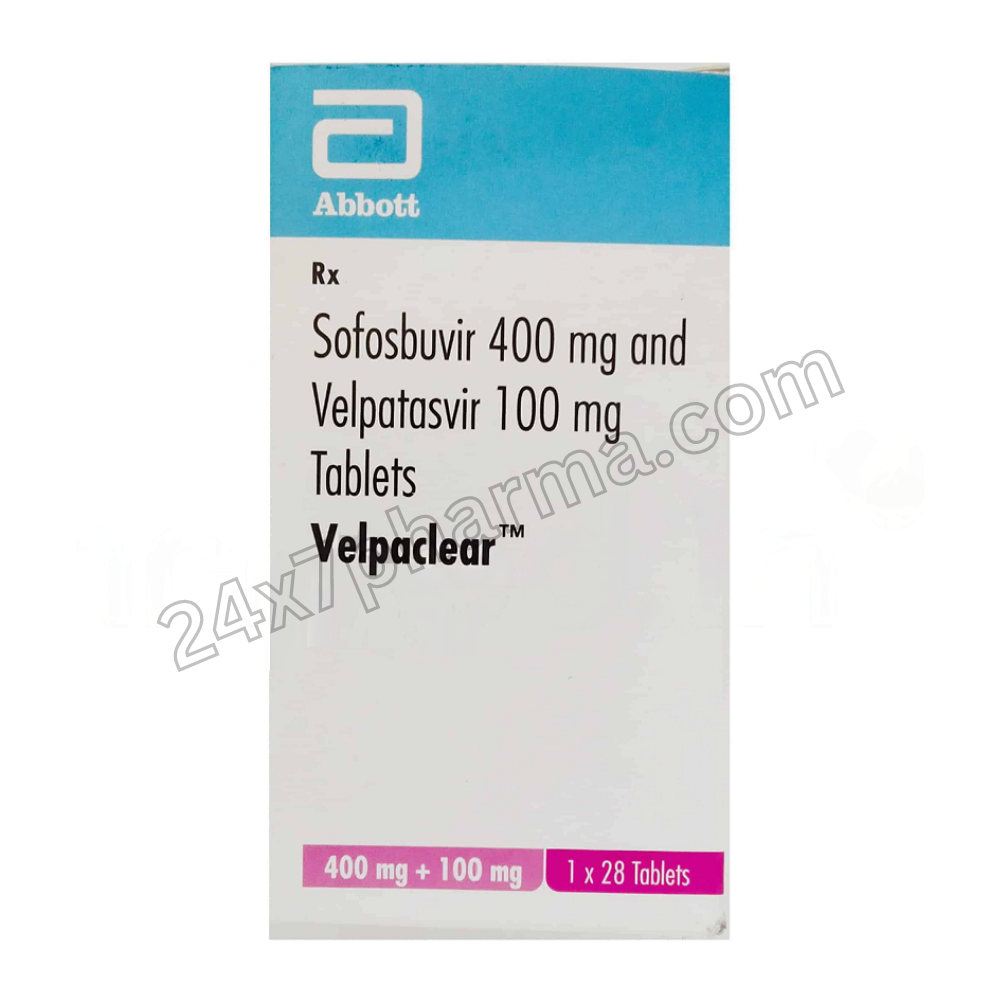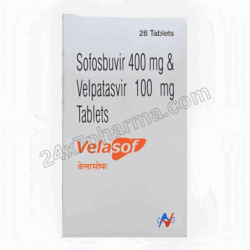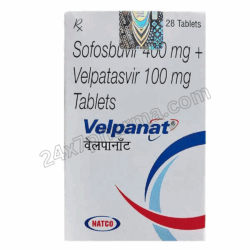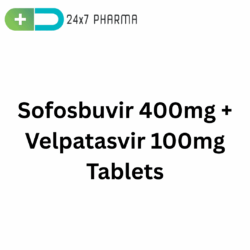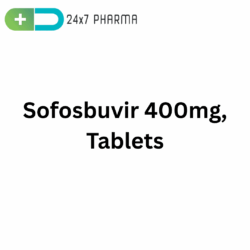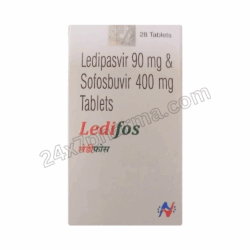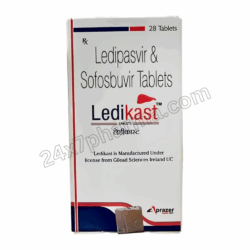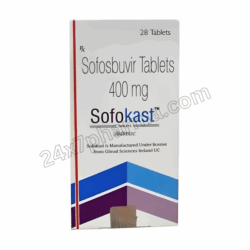About Velpaclear Tablet
Velpaclear Tablet contains the active components Sofosbuvir and Velpatasvir. It is used to treat chronic hepatitis C. Hepatitis C is a liver infection caused by the hepatitis C virus (HCV). The treatment duration is often shorter than older treatment regimens. The duration can vary depending on factors such as HCV genotype, previous treatment history, and the presence of liver cirrhosis. Successful treatment with Velpaclear Tablet can significantly reduce liver inflammation and fibrosis caused by HCV infection. By achieving viral eradication, the risk of developing liver cirrhosis, liver failure, and hepatocellular carcinoma (a type of liver cancer) can be substantially reduced.
If you have a known allergy or hypersensitivity to Velpaclear Tablet or any of the components of the medication, you should not take it. The safety and efficacy of sofosbuvir and velpatasvir combination therapy have not been established in children under 18. Its use in the pediatric population is currently limited. It is recommended to use alternative treatment options or adjust the dosage in these cases.
Uses Of Velpaclear Tablet
- To treat chronic hepatitis C (HCV) infection.
Therapeutic Effects Of Velpaclear Tablet
Sofosbuvir is a direct-acting antiviral drug (DAA) that inhibits the replication of the HCV virus by targeting a specific protein necessary for viral replication. Velpatasvir is also a DAA that works by blocking the action of another protein involved in the HCV replication process.
Interaction Of Velpaclear Tablet With Other Drugs
Inform the doctor about your medicines, including prescription, over-the-counter, nutritional or vitamin supplements, and herbal products. Certain medications may interact with Velpaclear Tablet, reducing effectiveness by causing undesirable side effects.
More Information About Velpaclear Tablet
- Stored at controlled room temperature, between 20°C to 25°C (68°F to 77°F).
- Keep away from moisture, heat, and light.
- It should not be frozen.
- Keep away from children and pets
How To Consume Velpaclear Tablet
Read the instructions carefully before taking Velpaclear Tablet. Take them as directed by your doctor. Take it with or without food. This will help to improve absorption. If you experience side effects, stop taking them and talk to your doctor.
Safety Advices For Velpaclear Tablet
Pregnancy
There is limited information about the safety of Velpaclear Tablet in pregnancy. If you are pregnant and considering taking them, talk to your doctor about the risks and benefits. They can help you decide if they are right for you.
Breast Feeding
There is limited information about the safety of Velpaclear Tablet in breastfeeding. If you are pregnant or planning to become one, talk to your doctor about the risks and benefits. They can help you decide if they are right for you.
Lungs
If you have a chronic lung disease and are considering taking Velpaclear Tablet, talk to your doctor about the risks and benefits.
Liver
If you have a chronic lung disease, talk to your doctor about the risks and benefits. They can help you decide if Velpaclear Tablet is right for you.
Alcohol
It is generally recommended to avoid alcohol consumption during hepatitis C treatment, including Velpaclear Tablet. Alcohol can potentially worsen liver damage and interfere with the effectiveness of the medication. It is best to consult with your healthcare provider regarding alcohol consumption during treatment.
Driving
Common side effects of Velpaclear Tablet include headache, fatigue, and dizziness. Suppose you experience any of these side effects or other symptoms that may impair your ability to drive safely. In that case, you should refrain from driving or operating heavy machinery until you feel fully alert and capable.
Side Effects Of Velpaclear Tablet
Velpaclear Tablet cause some side effects like all medications, although not everyone will experience them.
Serious :
- Hepatitis B reactivation
- Severe allergic reactions
Common :
- Headache
- Fatigue
- Nausea
- Insomnia
- Diarrhea
- Itching (pruritus)
- Decreased appetite
- Muscle or joint pain
- Rash
- Dizziness
Word Of Advice
Before initiating treatment, individuals should be screened for hepatitis B virus (HBV) infection due to the risk of HBV reactivation. Close monitoring of liver function and HBV DNA levels is necessary during and after treatment, particularly for those with a current or prior HBV infection. Additionally, potential drug interactions with other medications should be carefully evaluated, and healthcare providers should be informed about all current medications. Individuals taking amiodarone should be closely monitored for severe bradycardia (decreased heart rate) when co-administered with this medication. Dose adjustments are necessary for patients with severe renal impairment or end-stage renal disease. Assessing the potential impact on psychiatric health, especially in individuals with a history of psychiatric disorders, is necessary. Pregnancy and breastfeeding considerations should be discussed with a healthcare provider, and caution is advised for specific populations such as those with HIV/HCV co-infection and liver transplant recipients.

